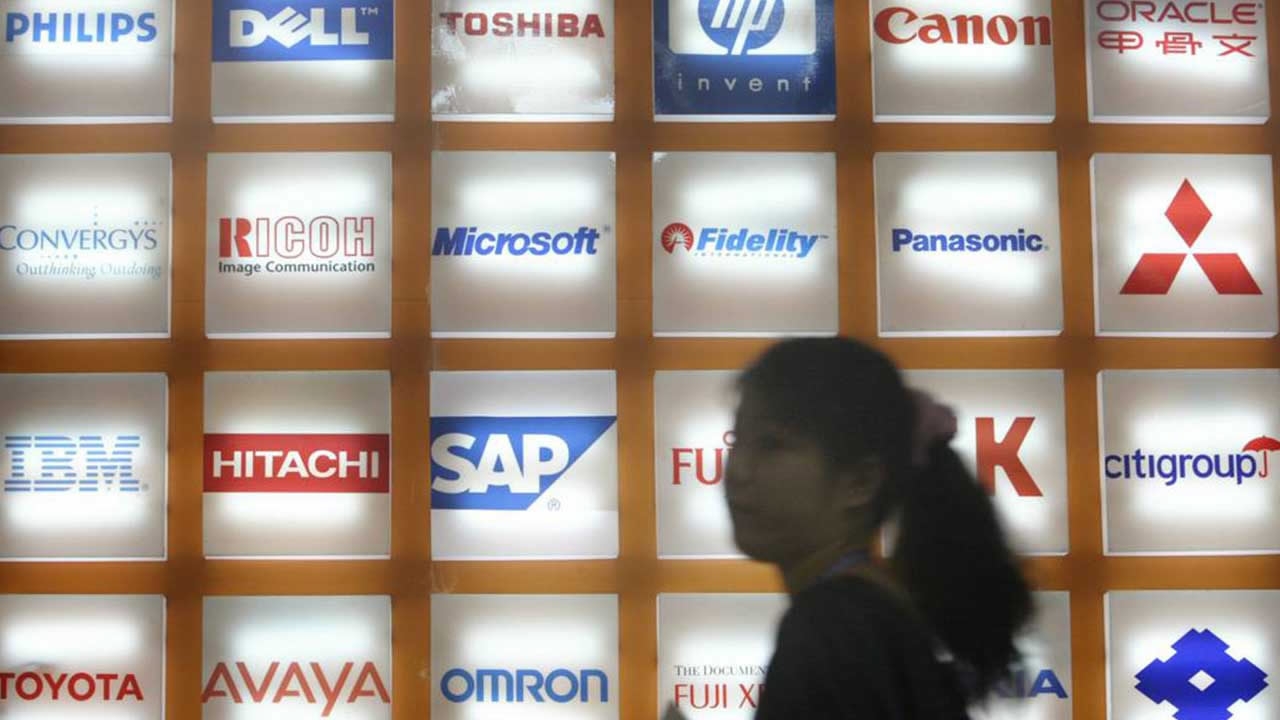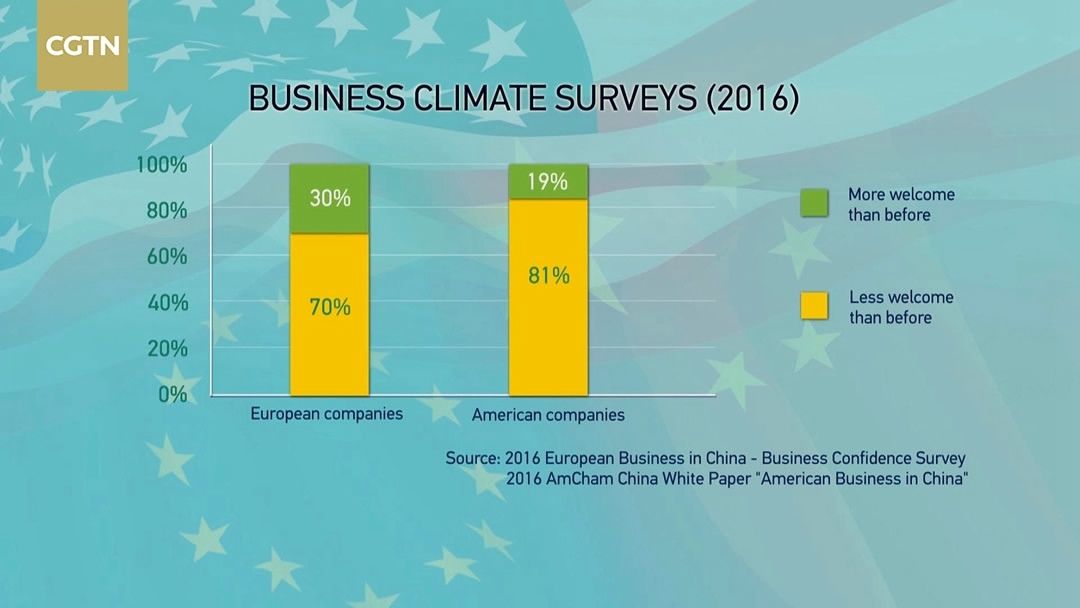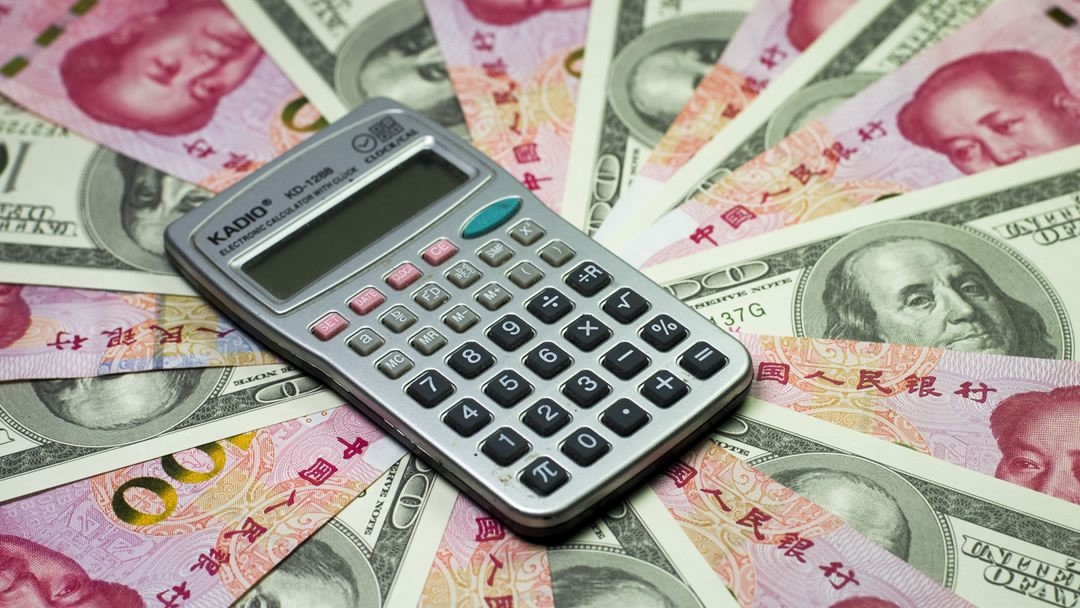
Business
20:20, 06-Mar-2017
Foreign business in China: Challenges and opportunities coexist in 2017
Updated
10:58, 28-Jun-2018

By CGTN’s Feng Xin
Foreign direct investment in the Chinese mainland grew by just over four percent last year, slower than the figure registered in 2015. It left some wondering whether China is becoming an increasingly difficult economic landscape for foreign companies.

European and American businesses feel less welcome in China than before.
European and American businesses feel less welcome in China than before.
Business confidence surveys have shown that most European and American companies still believe China remains a significant investment destination. However, they are facing an increasingly challenging business environment.
Seventy percent of European companies in China felt less welcome than they did 10 years ago, and 81 percent of US companies experienced the same.
Some attributed the change to China’s economic slowdown and increased protectionism. Others believed the country has grown to be less dependent on foreign investment, technology and management expertise. So, what is happening in China?

Pei Changhong, Professor of the Institute of Economics at the Chinese Academy of Social Sciences. /CGTN Photo
Pei Changhong, Professor of the Institute of Economics at the Chinese Academy of Social Sciences. /CGTN Photo
“The challenges are real,” said Pei Changhong, CPPCC member and economics professor at the Chinese Academy of Social Sciences. “Some essential factors such as the cost of labor and land are increasing. But on the other hand, it is true that China is not as dependent on foreign investment as before. China’s fixed investment can reach dozens of trillions of yuan each year, but foreign investment only counts for less than 1 trillion yuan - a very small portion of the country’s investment basket,” Pei said.
This leads to the question: Is China still the land of business opportunities?
“Investment in general manufacturing businesses is declining,” said Pei. “These markets will become more and more competitive. But investment in high-end manufacturing is more than welcome in China, so is in service sectors. I think choosing to invest in areas that China is not good at yet will probably bring brighter market prospects,” he said.

The RMB devalued by 6.7 percent in 2016, hitting an eight-and-half-year low. /CFP Photo
The RMB devalued by 6.7 percent in 2016, hitting an eight-and-half-year low. /CFP Photo
Pei also cautioned that the renminbi’s stability and the uncertainties of the US Federal Reserves’ interest rate decisions will pose challenges for foreign businesses in China in 2017.

SITEMAP
Copyright © 2018 CGTN. Beijing ICP prepared NO.16065310-3
Copyright © 2018 CGTN. Beijing ICP prepared NO.16065310-3